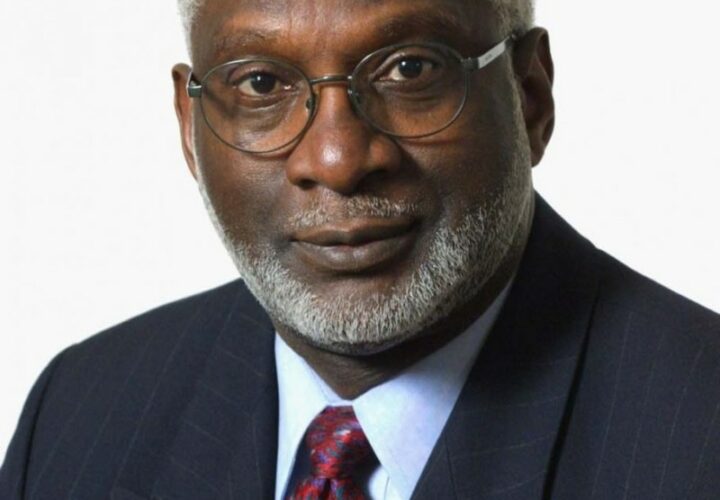Dr. David Satcher reflects on the current state of Alzheimer’s research, and his vision of the way forward.
As a former U.S. Surgeon General, Dr. David Satcher, M.D., Ph.D., is well acquainted with the challenges of tackling a disease like Alzheimer’s. And as a caregiver to his wife, Nola, who was diagnosed with Alzheimer’s 17 years ago, he knows the staggering weight of personal challenges that come with an Alzheimer’s diagnosis. We spoke to Dr. Satcher at the UsAgainstAlzheimer’s summit in Washington, D.C. earlier this month on the struggles of caregiving and when a cure will be available.
Being Patient: You’ve had a lot of experience both personally and professionally with Alzheimer’s disease. Tell me where you think we’re at in the fight for this disease and finding a cure.
Dr. Satcher: I think we’re making progress. It’s going pretty slowly because we just finished a major study that was negative. The intervention was not effective. That was a real let down. That means that we’ve got to find the next clinical trial. It’s important that we don’t give up. This is a tough disease. It’s a very complex disease. We don’t really understand the natural history of Alzheimer’s. We can’t diagnose it yet in the early stages.
Being Patient: As a former surgeon general you served under Bill Clinton and George Bush. You know the inside story of how money is allocated to research. In very recent years, there’s much more money going into Alzheimer’s disease. Is it sufficient?
Dr. Satcher: It’s not sufficient yet, but I would say that I’m pleased with the progression. I remember when we were talking about the fact that we had less than $500 million in research for Alzheimer’s. We’ve come a long way. Now it’s $1.4 billion and going to $1.8 billion. I think that progress has to be applauded. I think it’s moving in the right direction and I hope it does. It should continue to grow because there are so many people impacted by this disease. I think we have every reason to continue to support the research, but you also have to ask the question, “Where is the research?” The one thing I learned in government, you can’t just keep saying, “We need. We need.” You’ve also got to stop and say, “Well what’s happened with what we’ve invested? Are we to the point now where we can invest this money in a way that’s going to be most productive?”
I think we’ve got a lot of work to do in the community. I mentioned caregivers. I think we’ve got to find a way to better support caregivers. I think we’ve got to integrate this approach, this laboratory research approach, with research in the community and research in terms of family care. All of these things have got to be looked at critically. What works best? Can we develop a community-based approach to care?
Being Patient: How much should the conversation be today on brain health and preserving your brain’s health? We’re moving forward with science in terms of understanding brain health.
Dr. Satcher: I think it ought to be a major topic because in one way, we neglect the brain. I mean with all the talk that we’ve had about brain injury in football and soccer and basketball, we still see players who must not have gotten the message because they aim for the head too often. I think it’s decreased since we’ve started talking about it, but just last week I was watching a game and a player was going down and this player came out of nowhere with all of his force and had head contact. I think that a lot of these guys have been doing that since they played sixth grade football. It’s not going to be the easiest thing to change.
Being Patient: What about monitoring cognitive health? Athletics is one thing. We know the cause and what happens with athletes, but what about for the average person?
Dr. Satcher: I don’t agree that if you have only 15 or 20 minutes, you don’t have time to test memory, for example. I think you can start off an interview by asking a question and then there are ways to come back to that question. I think at least it could really alert you that something is wrong with memory. Now my doctor, Floyd Willis at Mayo, just about every time I go in there, I talk about [my wife], Nola. Then he wants to know, “What about you? How do you think this is affecting you?” He also referred me for psychological tests because I was at one point having some depression. It was mild depression in a way, but I had depression, so he referred me to a clinical psychologist.
Being Patient: Very common among caregivers.
Dr. Satcher: Yeah, very much so. We’ve got a lot to do.
Being Patient: When you look at where our research is with Alzheimer’s disease, what do you think is possible in the next 10 years?
Dr. Satcher: Oh, in terms of possible, I think it’s possible that we can have medications in the next 10 years that could effectively treat Alzheimer’s. I think it’s possible. It’s going to take the best of work and it’s going to take a lot of coordination. I was in office when we did the Human Genome Project. I just think that it’s going to take that kind of work. In terms of overall how this problem is being dealt with in other countries, we need more discussion about that because that’s what it’s going to take to solve problems. We’re going to have to have a coordinated approach throughout the world, like we did with the Humane Genome Project.
This interview has been edited for length and clarity.

